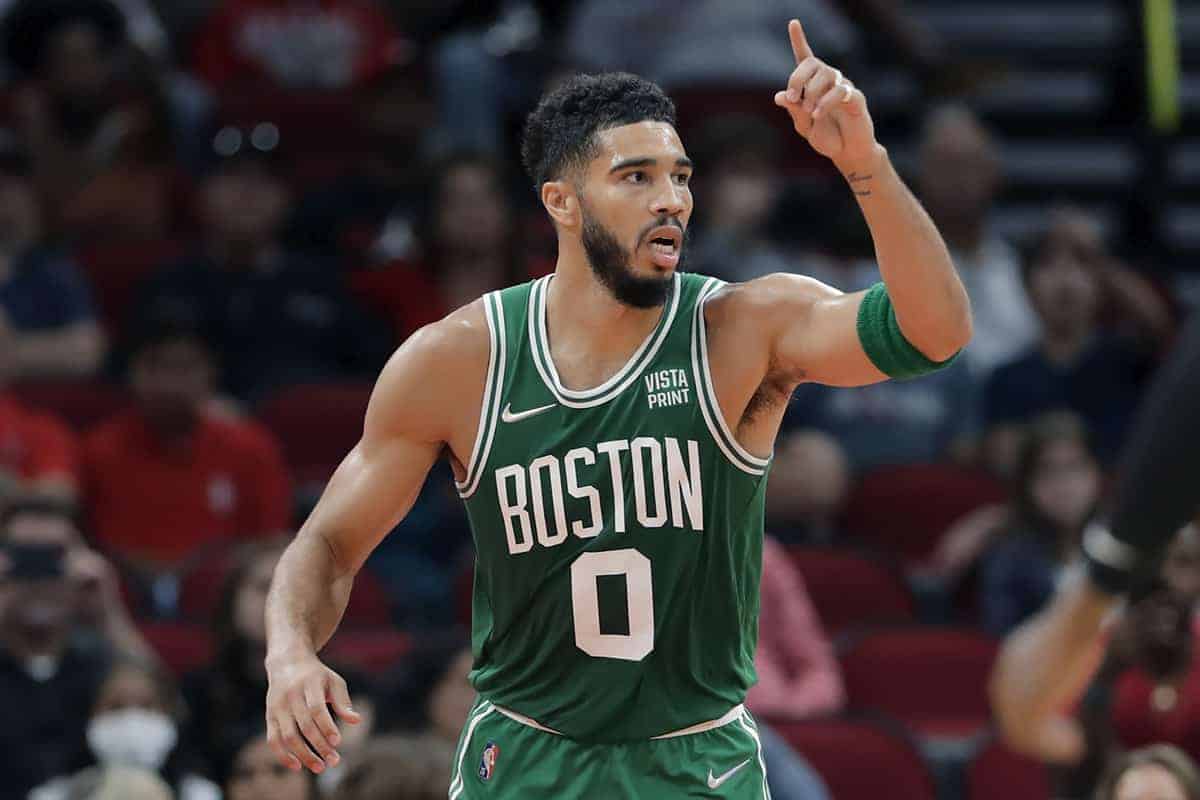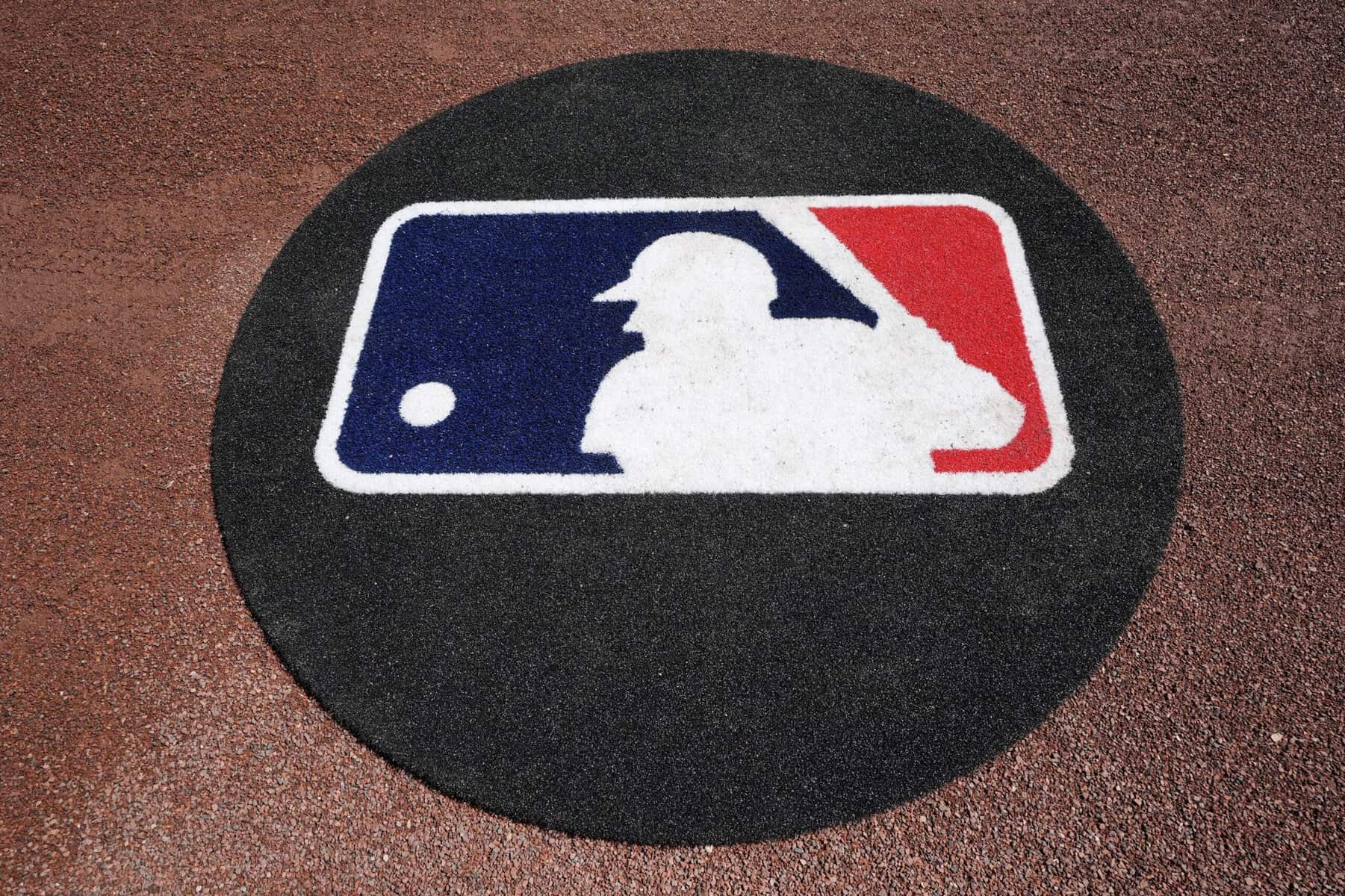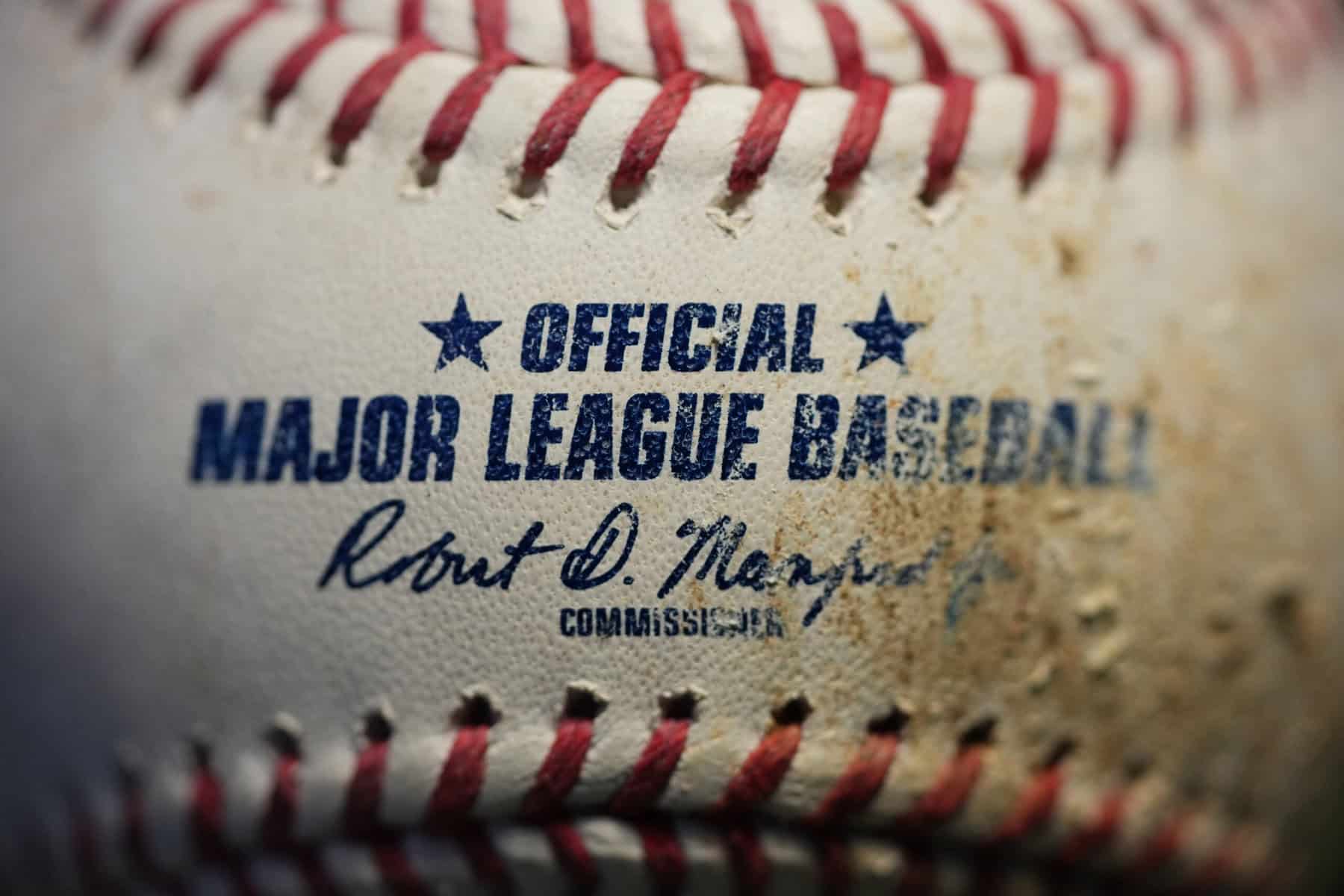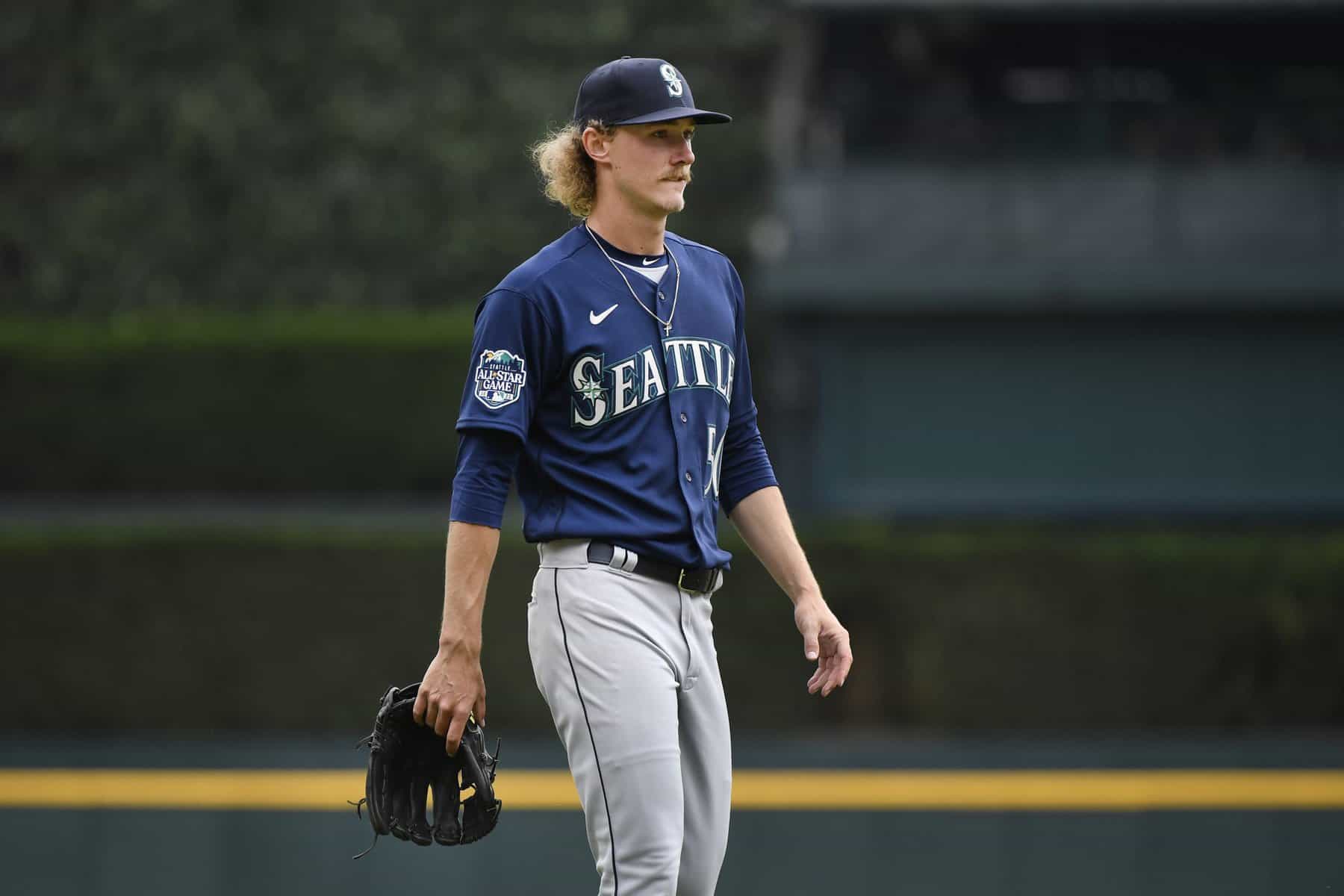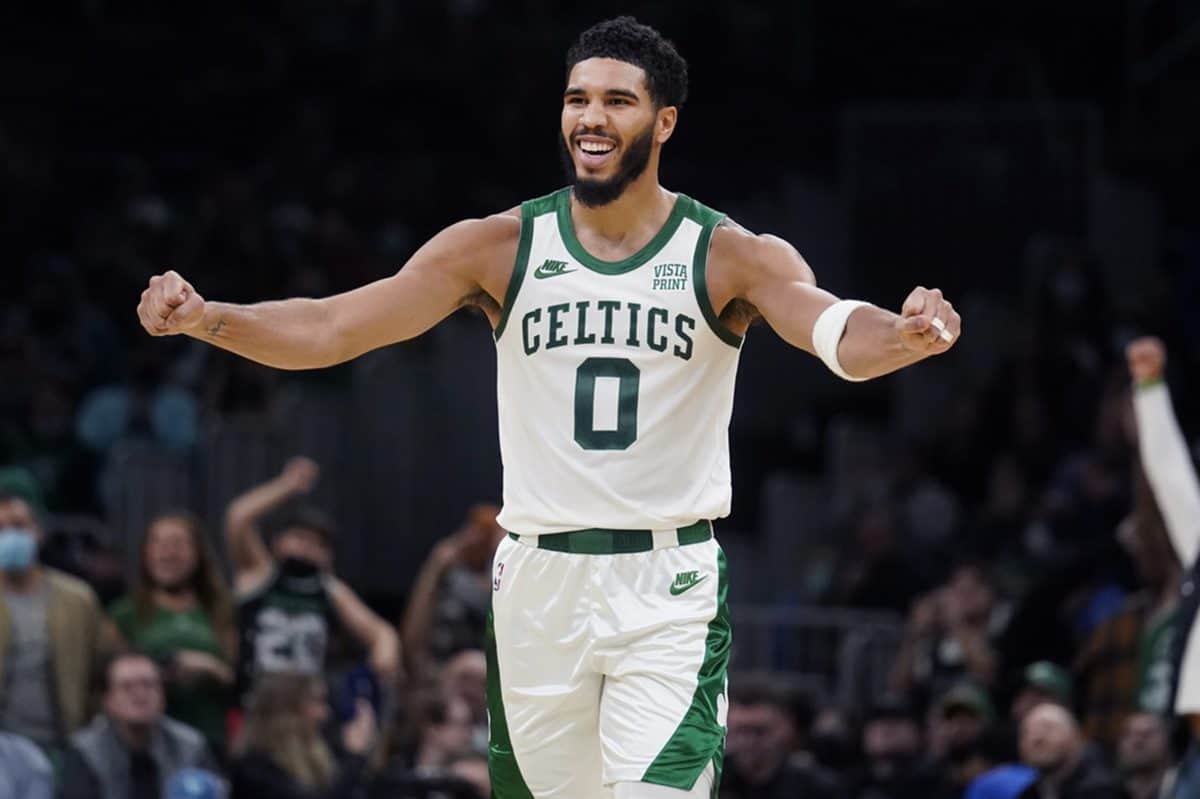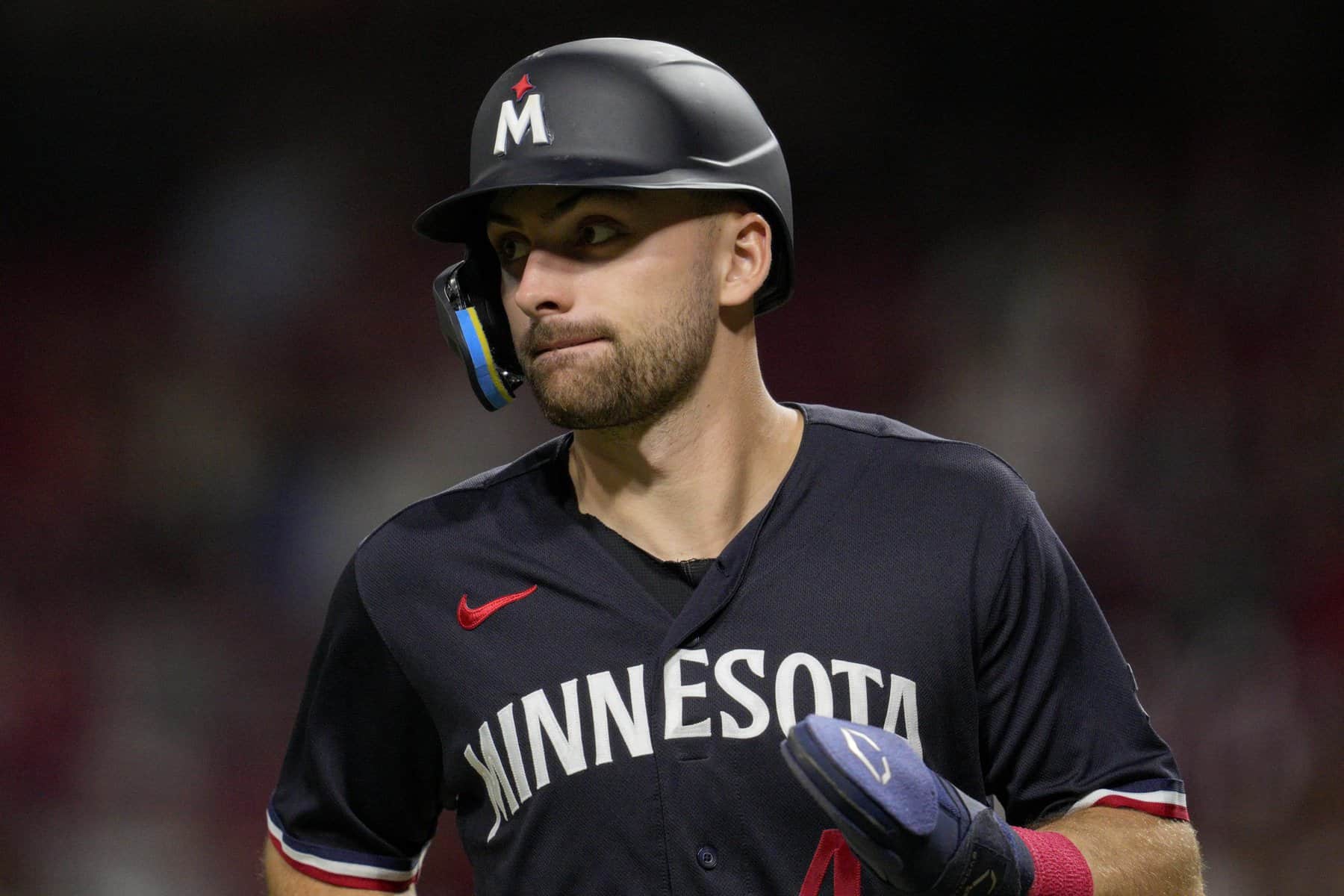The college football DFS season is finally here. With Week 1 action set to kick on Thursday, DraftKings and FanDuel have great contests for this slate of games. This CFB DFS breakdown will look at each team and provide information about each skill position player of note within the contest. Make sure to check out our projections, depth charts, datasheets for more information. With that said, let’s dive into the first iteration of the college football DFS picks for Thursday’s matchups. Be sure to check out the Awesemo YouTube channel for more CFB DFS picks and tips from myself and Ben Rasa.
***Click HERE to get your First Week of Awesemo+ College Football for ONLY $4.95 using promo code TAILGATE***
COLLEGE FOOTBALL
College Football DFS: Week 1 CFB Picks Thursday
Temple vs. Rutgers
Temple (18.75 Implied Total)
Plays/Game — 76.6 (24th)
Pass Rate — 47.01% (63rd)
Rod Carey has coached Temple since 2019. He is from Madison, Wisconsin, but has coached Temple to a 9-11 record. They now return eight starters on offense and six on defense. This includes four full-time starters on the offensive line. This unit was rarely healthy last year and started nine different combinations, allowing some reserves to earn playing time. They somehow only allowed 12 sacks.
At quarterback, Temple loses longtime starter Anthony Russo to transfer. Luckily, they added several transfers themselves, including new starter D’Wan Mathis ($4,900). Mathis started one game for Georgia early last year, while J.T. Daniels rehabbed a severe knee injury. He appeared in two others and played poorly for the most part. He completed 12 of 30 passes for 89 yards, one score, and three interceptions. Mathis also offers little on the ground with just 17 yards last year. Temple also earned a transfer at quarterback from Iowa State in Re-al Mitchell ($4,700). However, he was not listed on the depth chart with Justin Lynch getting the backup job. Mathis’ positives come from an uptempo, pass-heavy offense, and a severe drop in the skill of his competition. He is a contrarian option.
At running back, Temple listed Edward Saydee ($3,000) as the starter. He carried 19 times last year for 67 yards. He has not caught a pass yet in college. The presumed starter Ra’Von Bonner ($4,200) has missed time this fall with injury. According to beat reporters, he is still behind after opting out last year. He was not even listed among the top four backs. A converted safety, Trey Blair ($3,000), is listed as the backup for now. Saydee is a pure dart at the min price.
At receiver, Temple returns Jadan Blue ($4,700), Randle Jones ($4,200), and Jose Barbon ($3,700). Blue led Temple with 41 catches and 381 yards receiving last year. He also had 1,067 yards in 2019. Blue played 86.7% of his snaps in the slot. Jones finished as the second leading receiver with 31 catches for 370 yards. Jones missed most of 2019 with injury but had 445 yards back in 2018. Barbon finished as the team’s fifth-leading receiver with eight catches for 82 yards. He will be asked to replace Branden Mack. Behind these three, Purdue transfer Amad Anderson ($3,100) is a candidate for extra playing time. Temple throws a ton, so these are some cheap targets.
At tight end, Temple returns David Martin-Robinson ($3,000). Martin-Robinson finished fourth on the team in receiving with 11 catches for 147 scoreless yards. Temple will use four wide receivers at times, making him a dicey play. He ran the sixth most routes for Temple last year and should probably be left out of lineups here.
Rutgers (32.25 Implied Total)
Plays/Game — 75.4 (34th)
Pass Rate — 49.48% (46th)
Last year Rutgers went 3-6 with wins over Michigan State (38-27), Purdue (37-30), and Maryland (27-24). They lost by single digits to Illinois (23-20), Michigan (48-42), and Nebraska (28-21). This year, they return 11 starters on offense and 10 on defense.
Rutgers ranked 96th in pass blocking last year. They returned all their starters here, but none of them were very good. Not one of them earned All-Conference honors. However, they were forced to play with six different units. It should also be noted that this group improved from 2019 to 2020. Another step forward is not out of the question.
At quarterback, Rutgers will continue the Noah Vedral ($5,900) experiment. Vedral performed somewhat well. He completed 61.5% of his passes for 1,253 yards, nine touchdowns, and eight interceptions. However, he mainly threw underneath passes and screens on his way to 5.7 yards per attempt. Fortunately, Vedral has solid mobility. He rushed for 193 yards and a score on just 68 attempts. Vedral stands out as a strong target due to matchup and mobility here.
Rutgers will use a one-two punch of Isaih Pacheco ($5,700) and Aaron Young ($5,000) in the backfield. Pacheco led the team in rushing with 515 yards on 116 attempts. He is also an excellent receiver out of the backfield with 19 receptions for another 130 yards. Young finished fifth on the team in rushing with 96 yards on 14 attempts, but he caught 23 passes for 100 yards. Young should spell Pacheco occasionally. Pacheco is a solid price-adjusted play.
At receiver, Rutgers returns their top three players in Bo Melton ($6,300), Shameen Jones ($5,100), and Aron Cruickshank ($4,500). Melton caught 47 passes for 638 yards and six touchdowns. Jones caught 34 passes for 378 yards. Cruickshank caught 37 passes for 239 yards. The former Wisconsin Badger will man the slot for the Scarlett Knights. They also added impactful transfers in Joshua Youngblood ($3,400) from Kansas State. Jones and Cruikshank, in particular, are cheap targets on a team with a solid implied team total.
Tight end is not a position of strength for Rutgers. Seldom used Jovani Haskins returns as the starter after catching six passes for 58 yards last year. He pass blocks a lot to help the offensive line. He only ran routes on 46% of his pass play snaps.
Boise State vs. UCF
Boise State (31.5 Implied Total)
Plays/Game — 66.3 (106th)
Pass Rate — 50.86% (37th)
Boise State changes coaches here, moving to Andy Avalos. He comes over from Oregon on the defensive side of the ball but has ties to Boise. His new offensive coordinator is Tim Plough, who coordinated UC Davis’ offense last year. UC Davis ran uptempo but skewed run-heavy. They ran 76.4 plays per game. Last year, Boise State went 5-2, with double-digit losses to BYU and San Jose State. This year, they return nine starters on offense and eight on defense. This includes an offensive line that returns four starters but ranked 101st in pass blocking last year.
Hank Bachmeier ($6,500) returns as the starting signal-caller for Boise State after battling injury in 2020. He played in five games, completing 61.1% of his passes for 1,150 yards, six touchdowns, and two interceptions. He offers no mobility with -6 yards on the ground last year. He looks a bit expensive here.
Running back projects to be a one-two punch between George Holani ($5,800) and Andrew Van Buren ($5,000). Holani was hurt for all but three games last year, but he rushed for 1,014 yards in 2019 while adding 26 receptions. Van Buren stepped up in 2020 but performed poorly. He rushed 111 times for 382 yards (3.4 per carry). Boise State did add Oregon transfer Cyrus Habibi-Likio ($3,300), but he has a similar skillset to Van Buren. Interestingly, Habibi-Likio was listed as the primary backup over Van Buren. Either way, look for Holani to lead the backfield. Holani could be a solid play on a team expected to run more this year.
At receiver, Boise returns dynamic playmaker Khalil Shakir ($6,900). Shakir caught 52 passes for 719 yards and six touchdowns on a 37.4% target share last year. He averaged over 100 yards receiving per game. C.T. Thomas ($5,500) was projected to start after finishing second on the team in receiving last year with 20 catches for 155 yards. He played 85.3% of his snaps in the slot. However, Stefan Cobbs ($4,100) was listed as the starter ahead of him. Cobbs ran the sixth most routes last year and caught four balls for 72 yards. The final listed starter was Octavius Evans ($4,900) over Billy Bowens ($3,700). Evans has battled injury throughout his career. He caught just four balls for 53 yards last year. Bowens ran the fifth-most routes for this team but produced just five catches for 39 yards.
At tight end, Boise State loses John Bates and will move forward with Riley Smith ($3,500). Smith finished third on the team in receiving with 15 catches for 155 yards last year. He flexed into the slot on 42.3% of his snaps.
UCF (37 Implied Total)
Plays/Game — 88.0 (1st)
Pass Rate — 49.55% (44th)
UCF moves from Josh Heupel to Gus Malzahn at head coach. He brought in co-offensive coordinators in Tim Harris and G.J. Kinne. Kinne will coordinate the pass after calling plays for Hawaii. UCF finished 6-4 last year and did not return eight starters on offense and nine on defense. This includes every starter on the offensive line, despite the team ranking 113th in pass blocking.
UCF is set at quarterback with veteran signal-caller Dillon Gabriel ($9,100). Gabriel completed 60% of his passes for 3,570 yards, 32 touchdowns, and four interceptions last year. He averages 8.9 yards per attempt as his career average. Going from Josh Heupel to Gus Malzahn is a severe downgrade, but Gabriel is supremely talented. He also rushed for 169 yards on 72 attempts. He is a bit expensive here, despite the massive implied team total.
UCF’s running game has dealt with multiple blows already this season. R.J. Harvey suffered a season-ending injury, and leading returner Bentavious Thompson is not with the team. That leaves a pair of transfers in Mark Antony-Richards ($6,300) and Isaiah Bowser ($5,500) to handle the work. Antony-Richards followed Malzahn from Auburn after rarely seeing the field as a freshman. Bowser looks like the more intriguing option after rushing for 866 yards as a freshman with Northwestern in 2018. Since then, he has not eclipsed 230 yards in a single season. These two should share the work. Taking a shot here could pay dividends with this team total.
At receiver, Jaylon Robinson ($8,600) is the in-house leader. He finished second on the team with 55 receptions for 979 yards. He finished with a 22.4% target share. This team lost Marlon Williams, Tre Nixon, and Jacob Harris opening playing time for a few transfers. Ryan O’Keefe ($7,600) has been clearly running with the starters after playing a depth role to this point in his career. The third receiver position is unsettled. Nate Craig-Meyers ($5,700) originally played with Malzahn at Auburn before transferring to Colorado State. This will be his third stop in six years. He has never caught more than 23 passes for 329 yards. They also landed Brandon Johnson ($6,400) from Tennessee and Jordan Johnson ($3,900) from Notre Dame. Brandon caught 19 passes for 231 yards with the Volunteers last year. The two Johnsons have reportedly been battling for this third receiver spot, but all three players could mix into the game.
They return Jake Hescock ($3,700) at tight end, who caught 10 passes for 53 yards and three touchdowns. He had a 2.8% target share and does not project for much more.
East Carolina vs. Appalachian State
East Carolina (24.5 Implied Total)
Plays/Game — 75.2 (36th)
Pass Rate — 46.53% (66th)
Mike Houston enters his third season coaching East Carolina. He has a 7-14 record with the program. Last year they went 3-6, but they return 10 starters on both sides of the ball. This includes four starters on the offensive line. None of whom earned any conference honors.
East Carolina will trot out Holton Ahlers ($6,100) at quarterback. Ahlers completed 61.3% of his passes for 1,927 yards, 18 touchdowns, and nine interceptions last year. He also threw for 3,387 yards in a full season in 2019. Ahlers is a strong dual-threat, who rushed for 592 yards as a freshman, but that dropped to 109 yards in last year’s shortened season. He has not rushed as much of late, making him a somewhat middling quarterback option.
ECU will use a pair of running backs in Rahjai Harris ($6,600) and Keaton Mitchell ($4,800). Harris carried 128 times for 624 yards last year. Mitchell is more of a third-down back; he carried 88 times for 443 yards, but he added 11 receptions for 75 yards. Harris is the slightly preferred play, but both rushers will see work.
The top two ECU receivers are locked in between C.J. Johnson ($5,200) and Tyler Snead ($6,100). Johnson saw a 17.6% target share last season, while Snead saw a 26.4% target share. Snead ranked second on the team in receiving with 53 catches for 530 yards and will man the slot. Johnson was third with 19 catches for 405 as the team’s deep threat. The third receiver spot currently has Audie Omotosho ($3,400) atop the depth chart, but he is expected to split time with Taji Hudson ($4,400). Omotosho caught 18 passes for 198 yards last year. ECU throws the ball a fair amount, making Johnson the best price-adjusted play. ECU also uses a lot of four-wide sets, potentially putting the cheaper guys in play as well. Tight end Shane Calhoun ($) only caught five passes for 83 yards last year. However, the lower implied total leaves quite a bit to be desired here.
Appalachian State (31 Implied Total)
Plays/Game — 71.3 (70th)
Pass Rate — 38.39% (115th)
Appalachian State will have Shawn Clark entering his second season as head coach. He will have a new offensive coordinator in Frank Ponce, but Ponce has ties to the Appalachian State program. The Mountaineers finished 9-3 last year, losing to Marshall, Coastal Carolina, and Louisiana. They now return seven starters on offense and 10 on defense. Importantly, they lost three starting offensive linemen. However, they return two All-Conference players, highlighted by Baer Hunter, and add an FCS All-American from the transfer portal.
At quarterback, Clemson/Duke transfer Chase Brice ($5,700) earned the starting nod. Brice has solid mobility, but he struggled with sacks last year. He only recorded 93 yards rushing on 91 attempts. He also struggled as a passer. He completed 54.8% of his passes for 2,170 yards, 10 touchdowns, and 15 interceptions. Appalachian State relies primarily on the run, making Brice a low upside option after displaying questionable talent.
Appalachian State will use a committee consisting primarily of Camerun Peoples ($6,900) and Nate Noel ($4,100) at running back. Appalachian State uses multiple backs, but Daetrich Harrington will miss this game due to a knee injury. Peoples led the team in rushing with 1,124 yards on 168 carries. He will be the primary back. Noel carried 82 times for 510 yards and plays well on third downs. Notre Dame transfer Jahmir Smith ($3,000) is also on the roster and could see time, but this looks like a two-man show for the most part with Peoples leading the way. Both are solid price-adjusted plays in DFS.
The only clear-listed starter at receiver was Malik Williams ($4,700). Both Thomas Hennigan ($5,300) and Corey Sutton ($4,900) were listed as co-starters, with Jalen Virgil ($3,600) suggesting four wide receivers will get significant run early in the year. Hennigan led the team in receiving with 47 catches for 616 yards, but Williams was not far behind with 41 catches for 536 yards in one fewer game. Williams played 91.3% of his snaps in the slot. Sutton missed last year, but he had 773 yards and 601 yards to start his career in 2018 and 2019. Virgil caught 22 passes for 225 as the WR3 last year. Because of the low pass rate, all are middling GPP options on an elevated implied team total.
South Florida vs. North Carolina State
South Florida (20.5 Implied Total)
Plays/Game — 76.6 (23rd)
Pass Rate — 51.39% (35th)
Jeff Scott will enter his second season as South Florida’s head coach after a 1-8 season. Charlie Weis Jr. will be the offensive coordinator for the second season, suggesting a return of the up-tempo, pass-heavy approach. This team returns nine starters on both sides of the ball, but the talent was an issue. They do return all five starters on the offensive line and 108 combined starts. No one on this unit earned All-Conference accolades.
The quarterback position was a disaster for South Florida last year, with seven players attempting a pass. They named Cade Fortin ($5,000) the starter after throwing eight total passes last year. Fortin has dual-threat ability and rushed for 39 yards on four carries. This offense has the shell of productivity with a strong pass rate and plays per game. However, North Carolina State’s strong defense probably is not the place to target Fortin. He is a former North Carolina transfer.
The running back room will be split between Kelley Joiner ($4,000) and Brian Battie ($4,600). Battie was far more efficient with 46 carries for 332 yards (7.2 per carry), compared to 78 carries for 368 yards for Joiner (4.7 per carry). They lost their primary pass-catching back in Johnny Ford, but this is probably a unit to avoid.
The receiving room is unsettled, and the team will not release a depth chart. Bryce Miller ($4,800), Xavier Weaver ($3,000), Latrell Williams ($4,000), Omarion Dollison ($3,800), Yusuf Terry ($3,000) and Demarcus Gregory ($3,000) are all candidates to contribute. Miller led the team with 33 catches for 327 yards last year, while Dollison and Williams had 21 and 22 receptions. There is the potential for many opportunities here, but the depth chart is too unsettled to target here outside of massive GPPs.
North Carolina State (39 Implied Total)
Plays/Game — 72.2 (60th)
Pass Rate — 49.88% (41st)
Dave Doeren has coached North Carolina State since 2013 with a mediocre 55-46 record. Tim Beck returns as the offensive coordinator, and this team returns nine starters on offense and 10 on defense. This includes four starters on the offensive line. They ranked 111th in pass blocking but return Tyrone Riley from injury and add Chandler Zavala via transfer to help.
Devin Leary ($6,800) returns from a season-ending injury to quarterback North Carolina State. Leary completed 60% of his passes for 890 yards, eight touchdowns, and a pair of interceptions before the injury. He is not mobile, with just 7 yards rushing. However, he is the best signal-caller on the team, and North Carolina State’s 39-point implied team total keeps him in play for stacks.
North Carolina State utilizes a frustrating running back by committee featuring Zonovan Knight ($6,100) and Ricky Person ($5,200). Knight rushed for 788 yards on 143 carries (5.5 per carry), while Person had 643 yards on 147 carries (4.4 per carry). Both were factors as receivers, with Knight catching 20 passes and Person catching 18. Person’s inclusion in the offense is frustrating, but both can be used in this strong offensive environment.
The North Carolina State receiver room also remains intact. Emeka Emezie ($6,500), Devin Carter ($5,800) and Thayer Thomas ($4,400) all return. Emezie is the favorite to lead the team in targets after catching 47 passes for 738 yards last year. Thomas primarily plays the slot and caught 42 passes for 529 yards himself. Carter ranked third in receiving with 29 catches for 477 yards. Thomas looks like the top price-adjusted play, but getting stacks from this offense looks like a great idea in tournaments. They also return key depth pieces in C.J. Riley ($3,600) and Porter Rooks ($3,000). The only position they replace is tight end, where Dylan Parham ($3,300) is the presumed starter.
Bowling Green vs. Tennessee
Bowling Green (12.5 Implied Total)
Plays/Game — 64.8 (114th)
Pass Rate — 41.67% (101st)
Scot Loeffler will coach Bowling Green with Terry Malone functioning as the offensive coordinator. This team went 0-5 last year and even lost to Akron. They only return four starters on offense and seven on defense, again projecting to be one of the worst teams in the country.
Matt McDonald ($4,900) will play quarterback. He was horrific in his first year as a starter, completing 43.9% of his passes for 712 yards, one touchdown, and six interceptions. Do not play McDonald.
Terion Stewart ($6,200) should be the team’s leading rusher. He led the team last year with 37 carries for 295 yards (8.0 per carry). Stewart was efficient in MAC play, but this is Tennessee.
Tyrone Broden ($4,200) is the favorite for WR1 duties. Broden caught six passes for 97 yards last year, but Bowling Green lost their top three pass-catchers. Avoiding everyone from this offense is a good idea.
Tennessee (47 Implied Total)
Plays/Game — 68.9 (92nd) / 88.0 (1st) — UCF’s numbers
Pass Rate — 45.57% (75th) / 49.55% (44th)
This will be Josh Heupel’s first year at Tennessee after previously coaching UCF. While a mass exodus of transfers leaves the roster five starters on offense and seven on defense, this team should be far more exciting to watch.
Tennessee named former Michigan signal-caller Joe Milton ($8,300) their starter. Milton struggled in his first year as Michigan’s starter. He completed 56.7% of his passes for 1,077 yards, four touchdowns, and four interceptions. He is somewhat mobile with 109 yards rushing on 38 attempts. He beat out Hendon Hooker as the starter and draws an elite matchup here. Both quarterbacks could play in this potential slaughtering.
Tennessee listed Tiyon Evans ($5,600) and Jabari Small ($5,400) as co-starters at running back. Both Eric Gray and Ty Chandler transferred, leaving immense opportunity. Small carried 27 times for 117 yards while adding four receptions last year as a freshman. He is a solid all-purpose back, but Evans enters this season as a four-star recruit and the number one JUCO back from this year’s class. Both are elite options in this matchup. They can even be used together in certain GPP constructions.
Jalin Hyatt ($7,100) and Cedric Tillman ($5,000) were listed as clear starters for Tennessee. The final starting position had Velus Jones ($6,800) and Mississippi State transfer JaVonta Payton ($6,200) listed as co-starters. The Heupel offense often uses four wide receivers, so each of these players makes sense to some degree. Interestingly, Jones ranked second in receiving last year for Tennessee with 22 catches for 280 yards. Hyatt finished third with 20 receptions for 276 yards. Hyatt played 84.4% of his snaps in the slot. Tillman was just a part-time player but now earns a huge opportunity as a fourth-year junior. Payton caught 19 passes for 225 yards with Mississippi State, but Hyatt and Tillman look like the top two options for Tennessee pass catchers in stacks.
Ohio State vs. Minnesota
Ohio State (39.5 Implied Total)
Plays/Game — 73.9 (43rd)
Pass Rate — 41.62% (102nd)
Ryan Day returns as head coach after leading Ohio State to the National Championship. His offensive coordinator Kevin Wilson also returns along with six starters on offense and five on defense. This includes three returning starters on the offensive line. Ohio State is the favorite to win the Big Ten again this year.
With Justin Fields moving to the NFL, Ohio State named former four-star C.J. Stroud ($8,000) the starter. Stroud has yet to throw a pass, but
At running back, Ohio State returned Master Teague ($6,700) and landed a five-star freshman in TreVeyon Henderson ($3,800). Interestingly, Miyan Williams ($5,100) has received plenty of run with the first team in camp. This looks like a three-man committee to start the season. Teague split time with Trey Sermon last year, finishing with 514 yards on 104 carries. However, he struggled with efficiency and looks likely to take over the backfield. Williams is a bigger back and carried 10 times for 64 yards as a freshman last year. Henderson will certainly play a role early in his career.
Ohio State has the top receiving tandem in the country, with Chris Olave ($6,700) and Garrett Wilson ($7,500) returning. Ohio State seldom utilized a WR3. Jaxson Smith-Njigba ($5,300) will start in the slot but look for Julian Fleming, Marvin Harrison Jr., and Emeka Egbuka to rotate for the Buckeyes. Olave has 840 and 729 yards in consecutive seasons. He averaged over 100 yards receiving per game last year. Wilson also erupted for 723 yards last year as a breakout sophomore. They are cost-prohibitive, so playing both looks difficult. However, the Ohio State receivers are among the best options on the slate.
Jeremy Ruckert ($3,300) will return at tight end. He only caught 13 passes for 151 yards last year, but five were touchdowns. He is extremely cheap but will need to find the end zone to pay off.
Minnesota (26 Implied Total)
Plays/Game — 70.7 (77th)
Pass Rate — 39.89% (112th)
P.J. Fleck will enter his fifth season as Minnesota’s head coach, with Mike Sanford entering his second as offensive coordinator. Minnesota finished 3-4 last year and continues to regress. They return 10 starters on offense and 10 on defense after battling a COVID-19 outbreak for much of 2020.
At quarterback, Minnesota returns longtime starter Tanner Morgan ($6,200). Morgan regressed sharply without Tyler Johnson and with Rashod Bateman playing a partial season last year. He completed just 57.9% of his passes for 1,374 yards, seven touchdowns, and five interceptions. He does not have any mobility and will now face an experienced Ohio State secondary. He is a hard pass.
Running back will be manned by workhorse Mohamed Ibrahim ($8,600). Minnesota played slower, run-heavy football last year, allowing Ibrahim to average 30.1 opportunities per game last year. He struggled with efficiency at times, but no player will have more volume at the position. That alone keeps him in play. Even Trey Potts and Cam Wiley averaged over five opportunities per game in Minnesota’s run-heavy approach.
The starting receivers look like Chris Autman-Bell ($6,000), Daniel Jackson ($5,200), and Dylan Wright ($4,600). Autman-Bell has missed most of fall camp with an injury. His status should be monitored leading up to game time. Autman-Bell’s 22% target share equated to 5.4 targets per game. He is not even a strong option at $6,000. Jackson finished third in receiving with 12 catches for 167 scoreless yards. Wright is a transfer from Texas A&M, where he never recorded a stat. This is a weak position group in a run-first offense that often uses 12 personnel.
Eastern Washington vs. UNLV
Eastern Washington (29 Implied Total)
Plays/Game — 84.4
Pass Rate — 59.5%
Eastern Washington finished the 2020 season 5-2. Their only losses came to Idaho and FCS powerhouse North Dakota State. Their coached by Aaron Best and characterized by an up-tempo, pass-heavy scheme.
Eastern Washington returns Eric Barriere ($5,200) at quarterback. Barriere completed 61.8% of his passes for 2,439 yards and 19 touchdowns in seven games last year. He is also a strong dual-threat, with 144 yards on 98 attempts last year. He will take some sacks, but Barriere is a solid cheaper dual-threat even against UNLV.
They will use Dennis Merritt ($4,900) and Tamarick Pierce ($4,400) at running back. Prince led the backfield overall with 86 carries for 474 yards, while Merritt complemented for 320 yards on 71 carries. Merritt was the better pass catcher with 10 receptions for 123 yards, while Pierce had eight for 40 yards. Pierce looks like the slightly better option overall.
This is a receiving room to potentially target with Talolo Limu-Jones ($5,000), Freddie Roberson ($4,500), and Andrew Boston ($4,300) all returning. Limu-Jones led the team with 48 catches for 759 yards. He played 89.7% of his snaps in the slot. Roberson finished second with 33 catches for 470 yards, and Boston finished third with 26 catches for 391 yards. All three of these receivers are in play due to the potential shootout at hand, with Limu-Jones looking like the best option.
UNLV (38.5 Implied Total)
Plays/Game — 74.8 (37th)
Pass Rate — 50.11% (40th)
Marcus Arroyo will enter his second season as UNLV’s head coach after going 0-6 last year. He also returns Glenn Thomas as offensive coordinator, suggesting a return to the pass-heavy, up-tempo offense. UNLV returns eight starters on offense and 10 on defense. Unfortunately, all three departures will come on the offensive line, leaving this unit unproven.
UNLV runs a solid offense to target a cheap quarterback, but they listed Doug Brumfield ($5,600) and Justin Rogers ($5,100) as co-starters on the depth chart. Neither played much last year. Brumfield and Rodgers threw 22 and 21 passes, respectively, while Brumfield out-rushed Rodgers 37-11 yards. Unfortunately, the quarterback platoon renders this position unusable for DFS outside of massive tournaments. Brumfield missed time early in camp with an injury, but he should take the first snaps.
Charles Williams ($5,900) returns as the starting running back for UNLV. Williams easily led this backfield with 495 yards on 116 carries. He also added 13 receptions for 44 yards. He is a solid option on a team with a massive implied total here. Backup Charles Magyar ($3,000) carried just two times last year.
Kyle Williams ($5,400), Zyell Griffin ($3,900), and Steve Jenkins ($4,800) were listed as the starting receivers for UNLV. The Rebels are a pass-happy team. Williams’ 28.4% target share amounted to 8.7 targets per game and 426 yards overall. Jenkins battled injury, but he caught nine passes for 79 yards in three games played. Likewise, Griffin only played in four games, but he finished second on the team in receiving with 118 yards. Giovanni Fauolo ($3,300) will start at tight end. He ran the third-most routes and caught 11 passes for 108 yards.
Southern Utah vs. Arizona State
Southern Utah (5.5 Implied Total)
Plays/Game — 71.5
Pass Rate — 60.3%
Southern Utah went 1-5 last year, with their only win coming over Cal Poly. They lost all their other games by single digits against Northern Arizona, Idaho State, Idaho, Weber State, and Northern Arizona a second time. Demario Warren enters his sixth season as head coach. Matt Wade enters his second season as offensive coordinator. He is known for his pass-heavy approach. The Thunderbirds lost 45-14 to San Jose State last week.
The quarterback for Southern Utah is Justin Miller ($6,000). Miller started in the spring season for Southern Utah and completed 65.7% of his passes for 1,713 yards, 15 touchdowns, and just four interceptions. He only threw for 117 yards on 28 attempts against San Jose State. He is not an option here.
At running back, Southern Utah utilized a three-man committee. David Moore ($3,000) led the team with 10 carries but finished with 5 yards. No running backs can be used here.
At wideout, they return their leading receiver Landon Measom ($6,500), who caught 30 passes for 446 yards. He did not see a target last week. Last year’s third-leading receiver Lance Lawson ($3,600) finished with 15 yards on three targets. Judd Crockett ($3,200) led the team with five targets. None of these receivers should be targeted in DFS.
Arizona State (50 Implied Total)
Plays/Game — 64.5 (115th)
Pass Rate — 36.05% (120th)
Arizona State finished 2-2 last year under Herm Edwards after battling a COVID-19 outbreak. Zak Hill returns as offensive coordinator after what turned out to be an extremely slow and run-heavy attack. Arizona State returns nine starters on offense and all 11 on defense. This includes four starters on the offensive line in a strong group. Arizona State has the highest implied team total, but they could play reserves in the second half against Southern Utah.
Jayden Daniels ($8,500) returns as a third-year starter at quarterback. Daniels completed 60.7% of his passes for 2,943 yards, 17 touchdowns, and two interceptions as a freshman. Last year, he only threw 84 passes. He has strong mobility with 355 yards and 223 yards rushing in consecutive seasons.
Arizona State will use a two-man committee featuring Rachaad White ($7,000) and DeaMonte Trayanum ($5,900). Trayanum led the backfield in carries, with 49 for 290 yards. However, White led the backfield in yards rushing, with 420 on 42 carries. He also caught eight passes for another 151 yards. White is the more explosive back here. Both are good options in DFS.
Only Johnny Wilson ($6,600) was listed as a clear starter for Arizona State. Bryan Thompson ($7,300), Ricky Pearsall ($4,600), L.V. Bunkley-Shelton ($3,900), and Andre Johnson ($3,000) were all listed as co-starters. Wilson caught six passes for 89 yards last year. Pearsall, Johnson, and Bunkley-Shelton are also returners to the program. Thompson comes over from Utah after catching 18 passes for 461 yards in 2019.
Thanks for reading to the end of this article! If you appreciate this free content and want to see more of it every day, you can help us out by sharing this article on social media!
[CFBPAGE]

